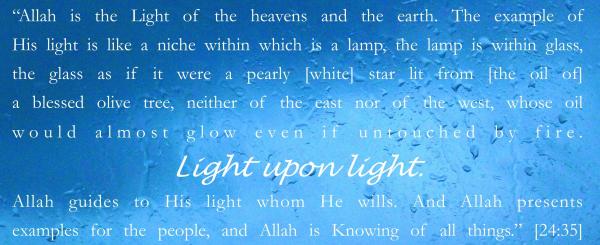EVERYTHING IS ABOUT LIGHT

Light is one of the most crucial elements of life and over the course of mankind, has come to symbolise goodness, beauty, vision, life and happiness.
Light illuminates our surroundings, and allows us to discern what is happening around us. It is this ability to physically perceive that gives us the power to anticipate what is ahead. The visibility allows us navigate with ease. The further we can see, the greater the means to plan and forecast, and consequently, to get to our destination safely. Even if we see an obstacle ahead, we have the time to steer around it in a safe manner.
In cases of bad weather, the light is broken and visibility is reduced. If we were travelling at high speed, we would be forced to slow down or even stop completely to re-orient ourselves.
The absence of light is darkness, a condition that implies the unknown, the unfamiliar, and even the scary. Light has been often equated with goodness and safety while darkness carries negative connotations of fear and danger. It is in the dark that we lose the ability to see, something that predators often take advantage of.
Darkness represents the unknown, leading to the lack of knowledge, the inability to foresee or to make intelligent estimates. During severely low visibility, airports have to shut down. If you have ever driven in a dense fog, a heavy storm, or even an unlit road, you will know how the lack of vision eradicates confidence. We can end up missing a junction or taking a wrong turn because we cannot see the roads or the signboards.
If you have ever experienced a power blackout, you would appreciate how everything becomes unfamiliar, and even menacing, in the dark. Walking from one room to another would be tricky without bumping into something. Even necessary tasks, like getting food and water, become difficult – even when you are in your own territory and are familiar with the layout.
Where does the fear come from? The unknown – the lack of bearings, and the lack of ability to predict and plan. We are afraid of getting hurt or hurting someone. Fear causes doubt and makes us hesitate, we can be crippled, unstable or even paralyzed by fear. It takes away our ability to think rationally and make the right judgment. The results can be fatal.
Spiritual Light
Just like physical light, spiritual light is crucial for our survival and well being. It equips us with the right tools to understand our surroundings so that we can make life decisions with proper vision.
The absence of spiritual light leads to a spiritual darkness and blindness that makes us fearful, unable to see ahead hence unable to steer our lives into the best possible direction.
Experiencing life without spiritual light is akin to living in physical darkness. Without inner light or guidance, things will be shrouded in lack of knowledge, understanding and comprehension. The natural consequence is insecurity and the fear of the unknown, resulting in rash and harmful decisions.
Today, we are hurtling though life at high speed and in spiritual blindness. We are making hasty decisions in partial, and even total, darkness of the soul, causing us to stumble and fall. We are unable see what lies ahead. This is the spiral of the unknown. One crisis succeeds the other – we do not see it coming and we do not know how to handle it when it comes.
How do we gain inner light?
To do so, we need to find a source of illumination which gives us spiritual energy. The same way that a candle, a lightbulb, a streetlight, the moon and the sun have different levels of luminosity, the more spiritual light we have and the more constant the light shines in our lives, the greater our ability to see. With this clarity of vision comes the ability to grasp the real situation and make the right decision.
Every religion is based on the fundamental belief that it is the message from the Almighty Creator. His divine messages, or revelations, equip humankind with the map, guidance, light and even the knowledge of coping with every aspect of life. It tells us why we are here, where we are going, what will happen after we die and how to prepare ourselves for it. It is this knowledge that is the key to obtaining light.
From an Islamic perspective, revelations form an entire package of knowledge, guidance, light, mercy and success.
Once we obtain this guidance, life becomes clearer. The unknown becomes known, and the future less terrifying. Even if the terrain is unfamiliar, we will know how to handle it. Whilst still unable to predict the future, the tools of equipping ourselves to deal with what life puts in our path, are at our fingertips.
One of Allah’s attributes is that He is Light. His Guidance is light, and His intermediaries in transmitting the divine revelations to us, the angels, are beings fashioned from light. The Prophets and Messengers are like the moon, reflecting and spreading the light from their Creator. This is the infinite Light, the one which will never diminish.





Aameen
Aameen